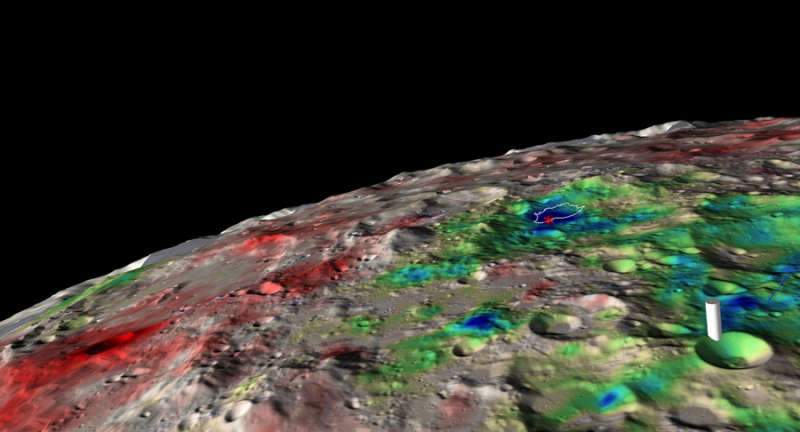Water Ice Detected Beneath Moons Surface

Explanation:
Is there enough water on the moon to sustain future astronauts?
The question has important implications if
humanity hopes to use the Moon as a future outpost.
Last year, to help find out,
scientists
crashed
the moon-orbiting
LCROSS spacecraft
into a permanently shadowed crater near the
Moon's South Pole.
New
analyses of the resulting plume from
Cabeus crater indicate more water than
previously thought, possibly about six percent.
Additionally, an
instrument on the separate
LRO spacecraft that
measures neutrons indicates that even larger lunar expanses -- most not even permanently
shadowed -- may also contain a significant amount of buried frozen water.
Pictured above from LRO, areas in false-color
blue indicate the presence of soil relatively rich in
hydrogen,
which is thought likely bound to sub-surface water ice.
Conversely, the red areas are likely dry.
The location of the
Moon's South Pole is also digitally
marked on the image.
How deep beneath the surface the
ice crystals permeate is still unknown, as well as how difficult it would be
to
mine the crystals and purify them into
drinking water.
Authors & editors:
Robert Nemiroff
(MTU) &
Jerry Bonnell
(USRA)
NASA Web Site Statements, Warnings,
and Disclaimers
NASA Official: Jay Norris.
Specific
rights apply.
A service of:
LHEA at
NASA /
GSFC
& Michigan Tech. U.

